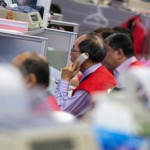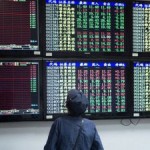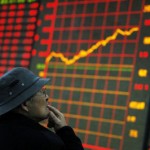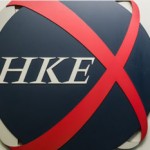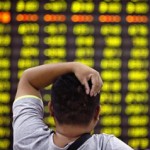Hong Kong shares rocket as mainland rally spills over
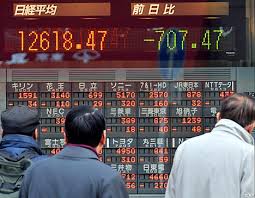
Funds trying to arbitrage major price differences
- Chinese funds buying HK shares ahead of Shenzhen pilot
- Previous attempts failed on tepid demand for HK shares
- Investors see HK shares as less bubbly than mainland stocks (Adds more detail on market reaction, context on mutual funds)
Mainland China‘s epic stock rally is spilling over into Hong Kong, driven by Chinese fund investors who are finally starting to exploit a long standing price difference between the two markets.
On Wednesday, Chinese investors used the entire 10.5 billion yuan ($1.69 billion) daily investment quota for buying Hong Kong stocks under the Shanghai-Hong Kong Stock Connect scheme for the first time; by Thursday morning more than 6 billion yuan ($967.26 million), over half of the daily quota, had already been.
This propelled the Hang Seng China Enterprises Index up 5.8 percent on Wednesday to four-year highs, on top of a 6.43 percent gain last week, and helped the Hong Kong exchange reach record volume – sharply outperforming mainland markets.
Hong Kong regulators told a press conference at market close that the rally had helped Hong Kong become the largest market by capitalisation in the world, at HK$28.6 trillion.
On Thursday morning the HSCE rallied again, up as much as 7.3 percent in early trade, compared with the mainland CSI300 index, which fell around 1 percent at the same time.
Small caps expected to become eligible for mainland investment when the Shenzhen leg of the stock connect opens – anticipation is for this year – have benefited even more. Hong Kong’s Growth Enterprise Market(GEM) has risen nearly 20 percent in four trading days.
The rebalancing is being driven primarily by Chinese fund managers seeking to exploit a long-standing pricing distortion between the markets which has caused sharply different prices for companies listed in both markets.
Including Wednesday’s gains, China’s CSI300 index has soared 92 percent during the past year while the Hong Kong China Enterprises Index has rallied only 30 percent.
As a result, until the recent rally mainland-listed blue chips were about one-third more expensive than their Hong Kong versions – as measured by the China-Hong Kong price premium index – while Chinese dual listed small-caps traded at a premium of 10 times the cost of the same company’s shares in Hong Kong.
Hedge fund managers told Reuters they had begun moving money last week to get in front of flows from China’s $807 billion mutual fund industry which is hitting the market now.
“With the two markets increasingly connected, this is an obvious arbitrage opportunity,” said Xia Xiaohui, chairman of Liuhe Capital in Shanghai.
In the past, arbitrage opportunities proved a mirage. The Shanghai-Hong Kong stock connect not only failed to narrow the premium after its November launch but actually widened it as Chinese retail investors declined to move money south.
But in late March, China’s securities regulator improved access for institutional flows, letting mainland mutual funds invest in Hong Kong shares via the connector. Several days later, China allowed domestic insurers to buy shares listed on Hong Kong’s GEM.
MUTUAL MOVES
Mutual funds are also rushing to create products that will guide their funds into Hong Kong.
For example, Invesco Great Wall Fund Management Co is launching China’s first actively-managed mutual fund to invest via the Shanghai-Hong Kong Connect, describing the Hong Kong market as a “gold mine”, and “a low-lying land” in terms of valuation. Borsera Asset Management Co plans to launch a similar fund this month.
“Water flows downward. So lowly-valued Hong Kong stocks are becoming increasingly attractive to mainland investors,” Borsera’s fund manager Zhang Xigang said, predicting that China’s mutual fund industry would soon start pumping liquidity into Hong Kong.
David Dai, Shanghai-based investor director at Nanhai Fund Management Co, a hedge fund, said he would buy Hong Kong shares in part because he thinks valuations on mainland exchanges are overheated.
“The current huge valuation gap and the excessive liquidity in mainland funds is raising interest in Hong Kong stocks,” said UBS strategist Lu Wenjie, noting Chinese small-caps trade at around 100 times earnings on average, compared with just 10 times for Hong Kong peers.
The mainland market is now seen as bubbly without growth, while Hong Kong has value but lacks liquidity, he said.
“Regulators seem to be very supportive for local funds to invest in Hong Kong and … there’s real demand and real interest from local investors.” ($1 = 6.2031 Chinese yuanrenminbi) (Editing by Nachum Kaplan, Richard Borsuk & Shri Navaratnam)
Source: Reuters – Hong Kong shares rocket as mainland rally spills over









